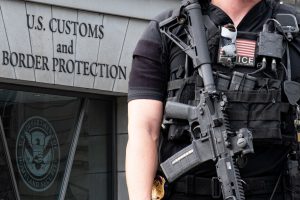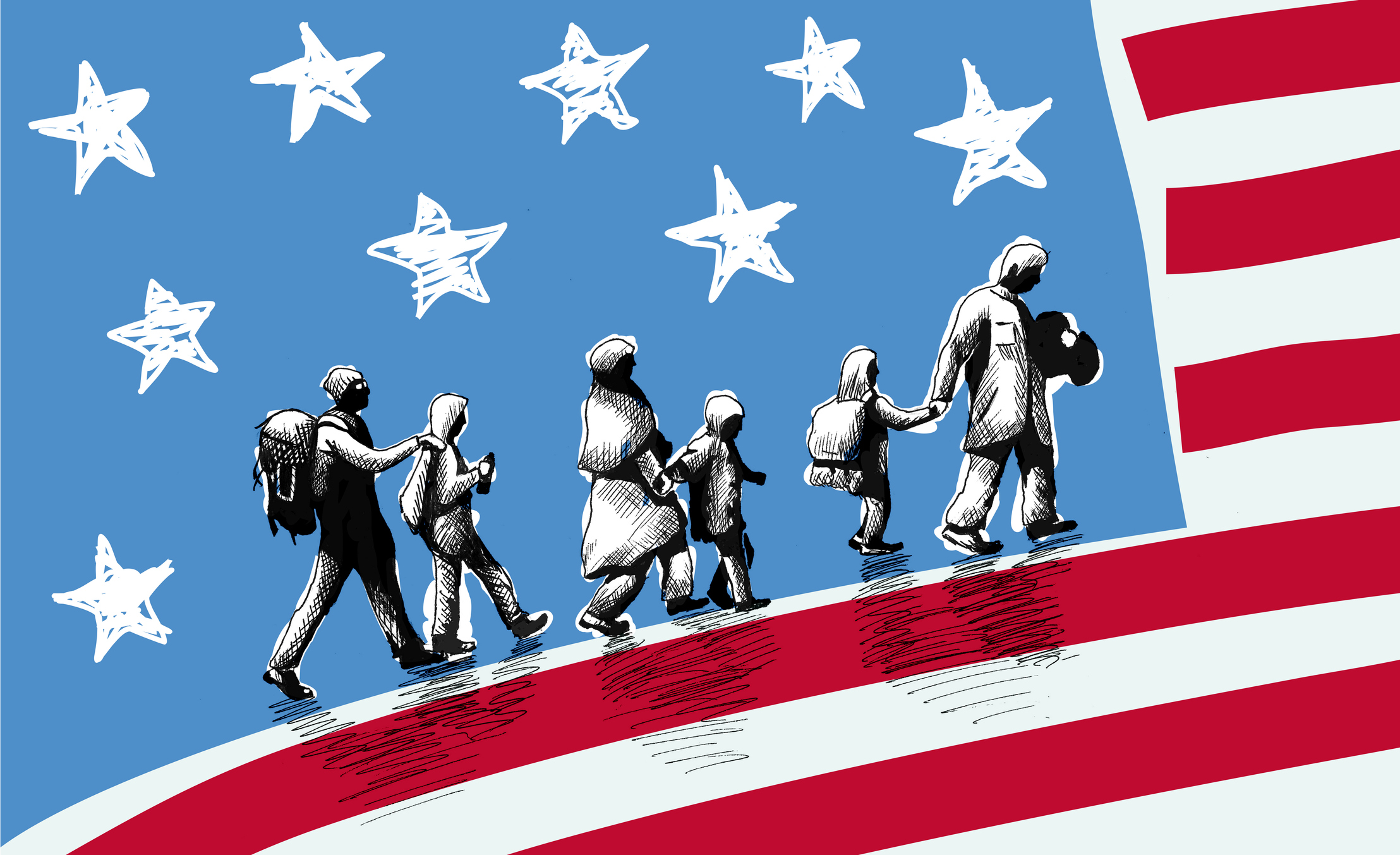Mel Wilson, NASW Senior Policy Advisor in collaboration with Social Workers for Immigration Justice (SWIJ)
Unauthorized entry of migrants into the United States along the country’s southern border has long been a contentious issue. That contention has intensified over the last decade — with Texas often being the center of controversy.
Texas is again in the immigration spotlight with passage of highly controversial Senate Bill 4 (SB 4). This legislation, if enacted, would put immigration enforcement authority at the state level instead of federal.
Specifically, the legislation would:
- Make it a state crime to cross the Texas-Mexico border between ports of entry. If a police officer has probable cause to believe a person crossed the Rio Grande, that person could be charged with a Class B misdemeanor or the charge could be increased to a second-degree felony if the person is a repeat offender.
- Allow judges to drop charges if the migrant agrees to return to their country of origin.
- Require state judges to issue an order for police to transport migrants to a port of entry if they are convicted and have served their sentence. Migrants who refuse to return to their country of origin could face a felony charge.
- Prohibits police from arresting migrants in public or private schools; churches or other places of worship; or health care facilities or facilities that provide forensic examinations of sexual assault survivors. However, the bill would allow arrests on college or university campuses.
To many, designating this important and politically sensitive role to law enforcement is problematic, especially because SB 4 allows untrained police officers to engage in immigration enforcement. Such training is necessary because there are numerous provisions in SB 4 that lack clarity. One of the gaps is the absence of immigration due process protections. Process issues aside, there is also uneasiness among advocates and within affected communities about the immediate impact of the bill should the U.S. Supreme Court (SCOTUS) permit SB 4 to be implemented.
These effects include:
Racial Profiling
An environment of racial profiling emerges whenever there is a policy that tolerates indiscriminate apprehension and detention. As stated by the We will Resist Campaign Coalition: “It [the law] will unconstitutionally grant state law enforcement the authority to deport people without due process leading to increased racial profiling of Black and Brown communities throughout the state. The suffering Texas leadership is willing to inflict on immigrants in their effort to override federal immigration law should give all Texans, regardless of background or party affiliation, reason for concern.”

An ICE agent
Compromised Public safety
Because much of the contact with suspected undocumented individuals under SB 4 will be with local law enforcement, there will likely be an impact on public safety. Even in communities where there are good relationships with the police, their expanded role in enforcing immigration violations will certainly sour those ties. SB 4 conflates the role of traditional local law enforcement with that of often feared U.S. Immigration and Customs Enforcement (ICE) agents. As a result, unauthorized migrants, their families, and other members of their communities will transfer the fear of interacting with ICE agents to police officers, which could lead to a reduction in crime reporting and an erosion in public safety.
Detention/ Family Separation
SB 4 also authorizes police to arrest, detain, and deport families with children. Holding families in detention centers has been a controversial immigration/asylum seeker policy for many years. It is likely more families will be caught up in immigration enforcement due to SB 4, which will lead to a significant increase in the demand for family detention beds. However, there does not appear to be a contingency plan from a budget and programmatic standpoint that anticipates such an influx of families and children. The absence of comprehensive planning for families and children raises fears of a return to cruel family separation policies seen during the Trump Administration.
There is vague language in the Texas House report on SB 4 that says police are allowed to turn migrant families over to Border Patrol agents to avoid separating children from their parents. The wording of this procedure sounds discretionary without any mandates for police to hand families over to Border Patrol. However, language in the House report does make clear that preventing family separations is not a high priority for SB 4.
Impact on Service Providers to Migrant and Immigrant Communities, including Social Workers
SB 4 impacts not only immigrants but all Texans, creating an environment of fear and mistrust. It has consequences that touch health care, social services, education, and the lives of everyday citizens. With that in mind, we must be concerned that non-governmental providers – including social workers – may suffer collateral damage under the law.
An example is the recent order issued by the Texas Office of the Attorney General for a local nonprofit shelter provider to turn over case records of suspected undocumented migrants. The nonprofit filed a challenge to the order. Instead of allowing the case to be resolved by the court, the Attorney General’s Office threatened to criminally charge the organization with offenses, which included smuggling people across the southern border and operating a stash house . This was an attempt to intimidate not only the nonprofit organization, but other professionals and programs that serve migrants regardless of their legal status.
National Implications of SB 4
While SB 4 is primarily a state issue, it has national implications. In line with a growing movement toward states’ rights in governing, SB 4 is one of a number of Texas challenges to constitutional boundaries regarding immigration. In our current, divisive political environment, other states with strong states’ rights agendas will likely mimic SB 4. Aside from creating a fragmented immigration system, such laws will threaten the constitutionally protected civil and human rights of vulnerable people such as asylum seekers and migrant children. The most immediate guardrail against this threat is our federal court system. The hope is that the SCOTUS will uphold the U.S. Constitution and keep immigration enforcement at the federal level.
Resources
American Civil Liberties Union – Texas Know Your Rights under Texas’ Deportation Scheme SB 4
National Immigration Forum – 5 Things to Know About Texas’ SB 4
NASW-Texas Chapter




